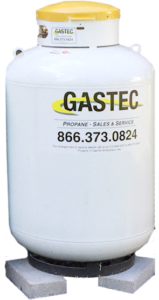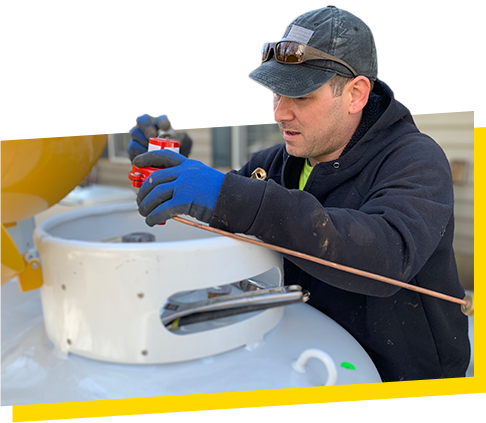Home » Residential » Home Heating
Home Heating
Choosing a heat source for your home can sometimes be overwhelming. There are a number of options to choose from, including natural gas, oil, wood, electric, and, of course, propane. But given the rising cost of oil and the limited availability of natural gas, many people are making the switch to propane, one of the most cost economically efficient options to choose from.
Do We Service Your Zip Code?
GasTec Home Heating Propane Options
Most propane burners are 90%+ efficient, though many can reach 97 to 98% levels of efficiency.
To put that into perspective, most oil units are 80% efficient.


Fortunately, propane heaters require almost zero maintenance and, because of this, have almost zero annual maintenance costs. Propane is also less expensive per gallon than oil, currently in PA. But, to perform an accurate PA propane price comparison, you have to factor in unit efficiency and BTUs per gallon of fuel. After considering each option’s unit efficiency, you will see that although one gallon of oil does provide more energy–or BTUs (British Thermal Unit)–per gallon compared to propane, the unit efficiencies and cost savings per gallon of propane actually provide significant savings per BTU over oil. Translation: Switching to propane will save you cash on each BTU you use!
Propane units are also much cleaner burning than oil units, and when comparing fuel oil and propane furnaces of the same efficiency, fuel oil systems have 30% higher emissions.
Propane is also non-toxic and insoluble in water; it doesn’t spill, pool or leave behind any residue, because it’s released as a gas. This means that propane is not harmful to your soil or water in the unlikely event of a tank leak, whereas oil is a harmful and toxic substance for the environment. Because oil is harmful and toxic to the soil and water, if a leak were to occur, you could be held responsible for significant cleanup costs.
There are also comfort factors to consider when comparing propane to electric heating, aside from the inflated cost of ever-rising electric prices. For instance, a typical heat pump will heat your home nicely, but you may not truly feel warm and cozy. This is because the temperature of the air that is forced from these systems is only about 95 to 100 degrees (roughly the same temperature of our bodies). Because it’s roughly the same temperature–and more often, slightly lower than our body temperature–the air will feel cool. A propane system will typically produce heated air around 120 degrees. This warmer air will allow you to feel more comfortable during the winter months.
And heating your home isn’t limited to just a furnace-style heater. Propane can also be used to fuel a boiler system and/or room-specific, wall-mounted units. This makes propane an easy choice, no matter what your home needs are.
Most homes that heat with propane will also have a few other appliances fueled with propane. With this type of system, underground propane tanks are very common and most often desired by homeowners. Underground tanks are usually installed as a 500-gallon or 1,000-gallon size. With just a small portion of the “dome” or lid visible above ground level, underground tanks will ensure your lawn remains clutter-free.

Request Service
Need a refill? Have questions or comments?
Leave us a message and we will respond as quickly as we can! If it’s an emergency please call.
If it’s an emergency please call.
"*" indicates required fields
